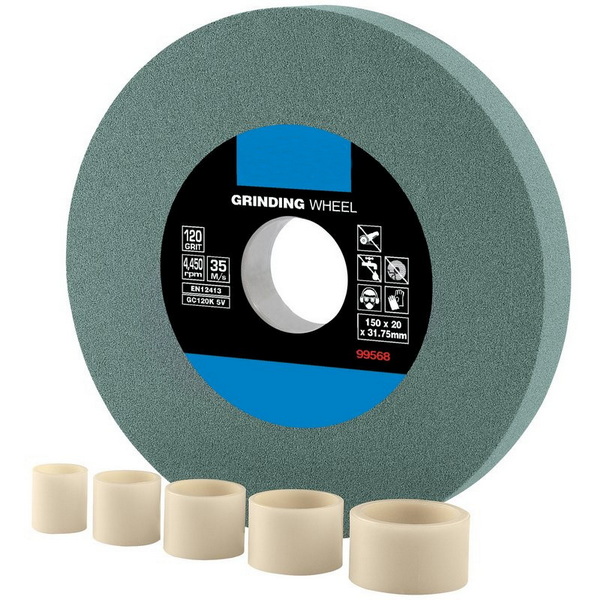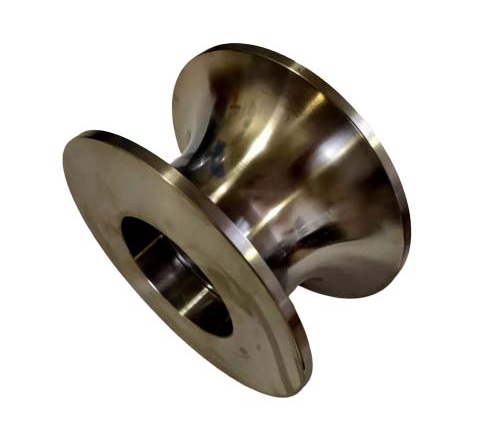Content Menu
● Introduction
● Understanding Carbide Roller Wheels
● Advantages of Carbide Roller Wheels
>> Durability and Longevity
>> Enhanced Performance
>> Cost-Effectiveness
● Applications of Carbide Roller Wheels
● Innovations in Carbide Wheel Technology
● Conclusion
● Related Questions
>> 1. What materials are carbide roller wheels made from?
>> 2. How do carbide roller wheels compare to traditional steel wheels?
>> 3. What industries commonly use carbide roller wheels?
>> 4. Can carbide roller wheels be customized for specific applications?
>> 5. What are the benefits of using carbide roller wheels in grinding operations?
Introduction
In the world of machining, precision is paramount. The ability to produce components that meet exact specifications can determine the success of a manufacturing operation. One of the key players in achieving this precision is the carbide roller wheel. These wheels, made from tungsten carbide, are renowned for their durability, strength, and ability to maintain tight tolerances. This article explores how precision is achieved with carbide rollers in machining, delving into their composition, advantages, applications, and the innovations that continue to enhance their performance.

Understanding Carbide Roller Wheels
Carbide roller wheels are specialized tools used in various machining processes. They are typically made from tungsten carbide, a material known for its hardness and resistance to wear. The manufacturing process of carbide roller wheels involves sintering tungsten carbide powder with a binder, usually cobalt, at high temperatures. This process results in a dense, durable material that can withstand the rigors of machining.
Carbide roller wheels come in various shapes and sizes, tailored to specific applications. They can be used in grinding, milling, and turning operations, making them versatile tools in the machining industry. Their design often includes features that enhance their performance, such as specific profiles and surface treatments that reduce friction and improve cutting efficiency.
Advantages of Carbide Roller Wheels
Durability and Longevity
One of the most significant advantages of carbide roller wheels is their durability. Unlike traditional steel wheels, carbide wheels can endure extreme conditions without significant wear. This durability translates into longer service life, reducing the frequency of replacements and maintenance. In high-volume production environments, this can lead to substantial cost savings.
The hardness of tungsten carbide allows these wheels to maintain their shape and cutting edges even under heavy loads. This characteristic is crucial in precision machining, where any deformation can lead to inaccuracies in the final product. As a result, manufacturers can rely on carbide roller wheels to deliver consistent performance over time.
Enhanced Performance
Carbide roller wheels excel in high-speed applications, where traditional materials may struggle. The ability to operate at higher speeds without compromising precision is a game-changer in machining. This enhanced performance is due to several factors, including the material's thermal stability and resistance to deformation.
When machining materials such as steel, aluminum, or composites, carbide roller wheels can achieve superior surface finishes and tighter tolerances. The sharp cutting edges of these wheels allow for clean cuts, reducing the need for secondary operations like polishing or grinding. This efficiency not only saves time but also minimizes material waste, contributing to a more sustainable manufacturing process.
Cost-Effectiveness
While carbide roller wheels may have a higher initial cost compared to traditional steel wheels, their long-term benefits far outweigh this investment. The durability and performance of carbide wheels lead to lower overall costs in manufacturing. Fewer replacements and reduced downtime for maintenance mean that manufacturers can focus on production rather than tool management.
Additionally, the precision achieved with carbide roller wheels can lead to higher quality products. This quality can enhance a company's reputation and lead to increased customer satisfaction, further justifying the investment in carbide technology.

Applications of Carbide Roller Wheels
Carbide roller wheels are used across various industries, including automotive, aerospace, and manufacturing. Their versatility makes them suitable for numerous applications, such as:
- Grinding Operations: Carbide roller wheels are commonly used in grinding machines to achieve precise dimensions and surface finishes. Their ability to maintain sharp edges allows for efficient material removal without compromising accuracy.
- Milling and Turning: In milling and turning operations, carbide wheels provide the necessary cutting power to shape materials accurately. Their durability ensures that they can handle the stresses of these processes without wear.
- Forming and Shaping: Carbide roller wheels are also used in forming operations, where they help shape materials into specific profiles. Their precision ensures that the final product meets exact specifications.
- Cutting Tools: Many cutting tools incorporate carbide roller wheels due to their hardness and ability to maintain sharp edges. This application is particularly common in the production of tools for machining other materials.
Innovations in Carbide Wheel Technology
The field of carbide wheel technology is continually evolving, with innovations aimed at enhancing performance and precision. Some of the latest advancements include:
- Advanced Coatings: New coatings are being developed to further improve the performance of carbide roller wheels. These coatings can reduce friction, enhance wear resistance, and improve the overall lifespan of the wheels.
- Precision Manufacturing Techniques: Advances in manufacturing techniques, such as computer numerical control (CNC) machining, allow for the production of carbide roller wheels with even tighter tolerances. This precision in manufacturing translates to better performance in machining applications.
- Custom Designs: Manufacturers are increasingly offering custom-designed carbide roller wheels tailored to specific applications. This customization ensures that the wheels meet the unique requirements of different machining processes, further enhancing precision.
- Sustainability Initiatives: As industries move towards more sustainable practices, innovations in carbide wheel technology are also focusing on reducing environmental impact. This includes developing processes that minimize waste and using recyclable materials in production.
Conclusion
Carbide roller wheels play a crucial role in achieving precision in machining. Their durability, enhanced performance, and cost-effectiveness make them an essential tool for manufacturers seeking to improve their processes. As technology continues to advance, the capabilities of carbide roller wheels will only expand, offering even greater precision and efficiency in machining applications.
By understanding the benefits and applications of carbide roller wheels, manufacturers can make informed decisions that enhance their production capabilities and ensure high-quality outcomes.

Related Questions
1. What materials are carbide roller wheels made from?
Carbide roller wheels are primarily made from tungsten carbide, a hard and durable material that provides excellent wear resistance and longevity.
2. How do carbide roller wheels compare to traditional steel wheels?
Carbide roller wheels offer superior durability, performance, and precision compared to traditional steel wheels, making them more suitable for high-speed and high-precision machining applications.
3. What industries commonly use carbide roller wheels?
Carbide roller wheels are widely used in industries such as automotive, aerospace, manufacturing, and metalworking, where precision and durability are critical.
4. Can carbide roller wheels be customized for specific applications?
Yes, many manufacturers offer custom-designed carbide roller wheels tailored to meet the unique requirements of specific machining processes.
5. What are the benefits of using carbide roller wheels in grinding operations?
Carbide roller wheels provide precise dimensions, superior surface finishes, and efficient material removal in grinding operations, leading to higher quality products and reduced waste.
















